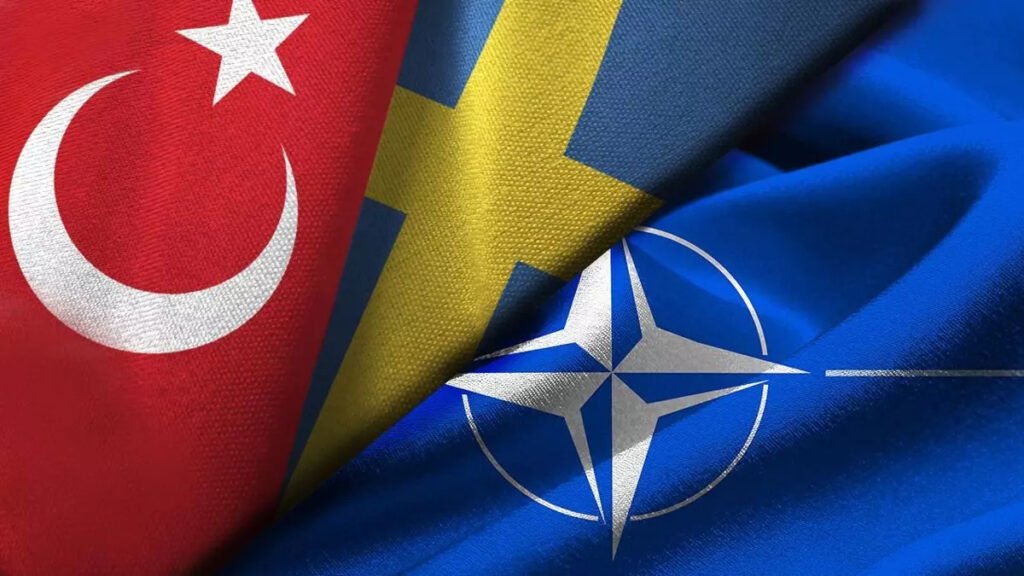Sweden’s path to NATO membership remains a controversial issue, with Turkey playing a pivotal role in shaping the outcome. Turkey had long used its NATO membership and the power of veto to block Sweden’s accession, citing concerns over Sweden’s support for Kurdish groups, which Turkey views as terrorist organizations. At the NATO summit in Vilnius, however, it was announced that Turkey would drop its opposition, clearing the way for Sweden’s formal entry into the alliance. This development was celebrated by NATO leaders, including U.S. President Joe Biden, and Sweden’s right-wing government under Prime Minister Ulf Kristersson. Despite these celebrations, the implications of this decision extend far beyond simple diplomatic success, particularly for the Kurdish community in Sweden and Finland, and for the broader Middle East.

Turkey’s Leverage and Kurdish Concerns
Turkey’s opposition to Sweden’s NATO membership was not merely symbolic; it was a tool used to extract concessions. President Recep Tayyip Erdoğan demanded changes in how Sweden and Finland handled Kurdish activists, particularly those associated with the Kurdistan Workers’ Party (PKK), which is designated as a terrorist organization by both Turkey and NATO. Over the past year, Kurdish exiles in Sweden have experienced increased harassment, including the closure of bank accounts, arrests, and even deportations. For many Kurdish representatives, this appeasement of Erdoğan’s demands reflects the abandonment of Sweden’s traditional support for human rights and political asylum. Hakan Cifci, a Swedish Kurdish representative, warned that allowing Erdoğan to dictate such terms amounts to endorsing his government’s human rights violations.
He pointed out that Kurdish political figures and activists in Sweden have faced growing intimidation from the Swedish state, marking a sharp departure from Sweden’s historically neutral foreign policy. This shift, coupled with the growing influence of right-wing political forces in Sweden, has left many Kurdish asylum seekers vulnerable to deportation to Turkey, where they face potential persecution.
Shifting Swedish Politics and the NATO Debate
The changes in Swedish policy towards the Kurdish community are reflective of broader political shifts within the country. Once a bastion of neutrality, Sweden has gradually moved toward a more militarized stance, culminating in the decision to join NATO. This shift was accelerated by the election of a new conservative coalition government in September 2022, which includes the far-right Sweden Democrats as a key component. The Sweden Democrats have long pushed for stricter immigration policies, and their pivot toward NATO is likely to further target Kurdish asylum-seekers, increasing the risk of deportation.
The Impact on the Kurdish Community
For the Kurdish community in Sweden and Finland, the implications of this NATO deal are profound. Many fear that the concessions made to Turkey will result in a crackdown on Kurdish political activities, as seen through new anti-terror legislation passed in Sweden, which has already led to convictions for financing the PKK. This law is viewed by many as an attempt to appease Turkey, and it has created a climate of fear and uncertainty among Kurdish activists.
The Kurdish community’s fear is compounded by reports of Turkey’s ongoing military campaigns against Kurds in Syria and Iraq. The possibility of further ground assaults in Northern Syria looms large, as Turkey has sought NATO’s approval for such actions in exchange for allowing Sweden’s accession. These operations have led to civilian deaths, displacements, and the targeting of Kurdish political leaders. Turkey’s military activities have not only destabilized the region but have also undermined the ongoing Kurdish-led fight against ISIS.

The Broader Geopolitical Implications
The deal with Turkey exposes a deeper flaw in the NATO alliance’s structure: the dependence on the consensus of authoritarian governments. While Sweden’s formal entry into NATO appears imminent, it has come at a cost. Erdoğan’s demands have revealed how NATO members can leverage their position to pursue domestic and regional agendas that contradict the alliance’s broader security objectives. Despite Erdogan’s unpredictable relationship with Russia and inconsistent alignment with Western sanctions, he has managed to maintain his influence within NATO while advancing Turkey’s strategic interests in the Middle East.
This situation leaves the Kurdish community in a precarious position, excluded from international diplomacy and vulnerable to the shifting alliances of global powers. The price for Sweden’s NATO membership may ultimately be paid by those most vulnerable to Turkey’s repression, both within Sweden and across the Middle East.
A Fragile Victory
While Sweden’s accession to NATO is being hailed as a victory for European security, it comes with significant ethical and geopolitical consequences. The Kurdish community’s fears of increased repression, coupled with Turkey’s strategic gains, cast a shadow over this moment. As Sweden transitions from neutrality to full NATO membership, the implications for human rights and international solidarity will continue to resonate long after the immediate political gains have been secured.

